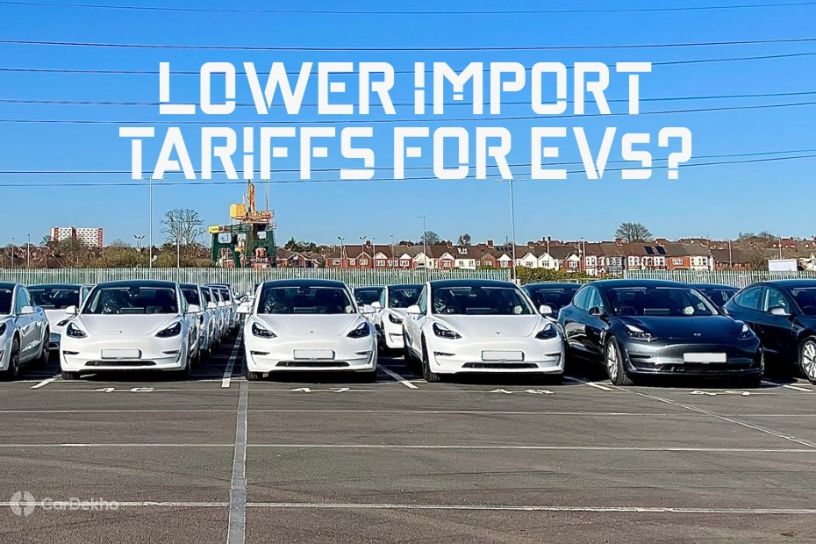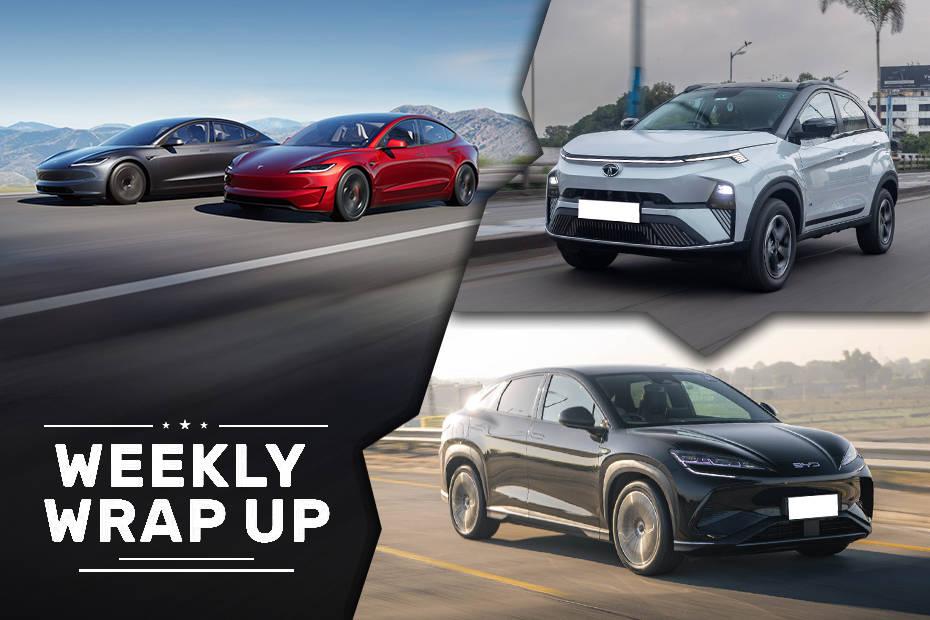Tesla Seeks Lower Import Taxes Before Finalising Local Production Plans
Modified On Jul 26, 2021 04:26 PM By Sonny
- Write a comment
The American automaker wants to test the local response to a more affordable EV before making an expensive commitment
-
Tesla is expected to launch in India by the end of 2021 with the Model 3 electric sedan as its first offering.
-
It will be a completely built unit which means it will attract high import duties and come in at a higher price.
-
Tesla is negotiating a reduction of tariffs for EV imports to 40 percent to make them less expensive at the start which could result in long-term growth.
-
At current import rates, the Model 3 could be taxed at 100 percent.
-
Ongoing tax policy discussions are not expected to delay the brand’s entry into India.

The premium EV space in India is eagerly waiting for Tesla’s entry, starting with the Model 3 as a CBU import. A recent report suggests Tesla is approaching Indian ministries asking for a reduction in the import duties on EVs to bring down the final price and boost demand.
Tesla isn’t the first carmaker to make this pitch. In the past, several luxury carmakers in India have made similar appeals to the Indian government. In a letter to one of the country’s leading think-tanks NITI Aayog, Tesla suggested a reduction of the federal taxes on imports of fully assembled EVs to 40 percent. At present, the current import tax rates stand at 60 percent for cars priced below US$ 40,000 (Rs 29.79 lakh) and 100 percent for cars above that. There has been no official reply from either NITI Aayog or the ministries approached by Tesla on this matter.
The source for the Reuters report said, "The argument is that at 40 percent import duty, electric cars can become more affordable but the threshold is still high enough to compel companies to manufacture locally if demand picks up.”
The entry-level Tesla Model 3 Standard Range Plus is the brand’s only car priced below US$ 40,000 (at US$ 39,990) but it can easily cross the threshold into the higher tax bracket. It’s the one that is expected to be the carmaker’s first offering in India and will likely be priced at around Rs 60 lakh with the existing tax rates as a fully-built import.

How Would Reduced Taxes Make a Difference?
Since the exact workings of tax policies are a complicated matter, we have to take some fictional numbers to try and demonstrate the results of reduced tariffs. For example, if the Tesla Model 3 was taxed at 100 percent with a price tag of US$ 41,000 (Rs 30.53 lakh), it could cost around Rs 61 lakh in India (ex-showroom). The suggested tax reduction for EVs could bring that entry price of the Tesla Model 3 down to Rs 42 lakh (40 percent over original price calculated at US$ 56,400). If the carmaker sees sufficient demand and sales at those prices, it will have a good reason to follow through by setting up local production to bring down the price even more and, in theory, result in increased sales.
Responding to a tweet enquiring about the launch of the brand’s EVs in India, Tesla Inc’s founder and CEO Elon Musk stated, “We want to do so, but import duties are the highest in the world by far of any large country! Moreover, clean energy vehicles are treated the same as diesel or petrol, which does not seem entirely consistent with the climate goals of India.”
Will This Delay the Brand’s Launch in India?
Well, it shouldn’t. Tesla set up its local company in Bengaluru at the start of the year and Model 3 units have been spied testing numerous times. The Tesla EV sedan is said to be on track for its Indian debut. However, the ongoing semiconductor crisis could affect delivery timelines in the immediate future.
The Tesla Model 3 is not expected to have any direct rivals in India at the time of launch. It will be positioned between the likes of the Hyundai Kona and MG ZS EV (premium compact electric SUVs) and luxury EVs such as the Mercedes-Benz EQC or Audi e-tron that are almost twice as expensive. The base-level Model 3 will still offer a claimed range of over 400km with a rear-wheel-drive motor. In its US-spec, the entry-level Standard Plus variant is equipped with a 15-inch touchscreen infotainment system, a fixed glass roof, premium upholstery, and power-adjustable front seats.

A more affordable Tesla EV, even before it begins local assembly or production, sounds incredibly tempting but it is highly improbable that the government will agree to such a tax cut. One of the main reasons that import taxes on fully built products are so high is to protect local manufacturers and incentivise new companies to invest in the local industry.
Do you think India needs to rethink its tax policies for zero-emission vehicles, both local and imported, for a cleaner future? Let us know your thoughts in the comments below.
2 out of 2 found this helpful















